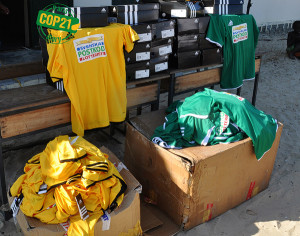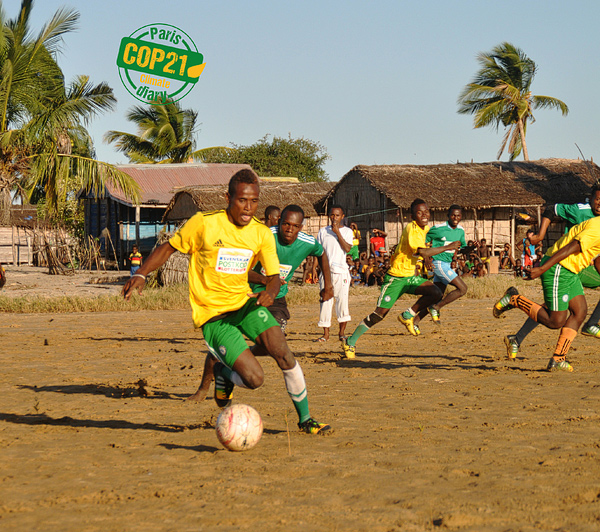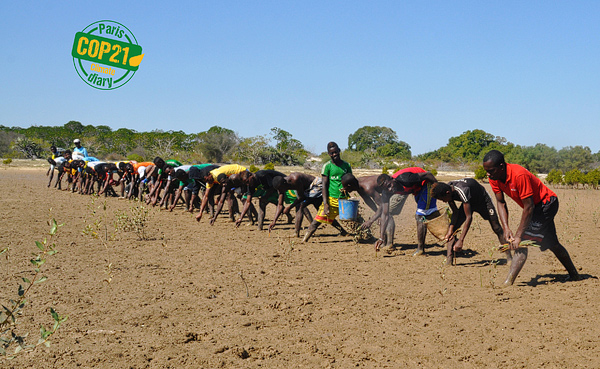For months a single question has dominated conversation among the young football players of the Kivalo district in Madagascar.
“When will the football equipment arrive?”
Kivalo is at the heart of the Manambolo-Tsiribihina region, one of WWF’s priority areas in Western Madagascar. Recently, a group of representatives from WWF Sweden and the Swedish Postcode Lottery visited projects there.
The visitors were enraptured by the spirit of the Malagasy people and their commitment to working with WWF towards a sustainable future in their region. They also noticed that everyone had an intense passion for football.
Youth would play in the streets, in the fields and, in this mangrove region, on the mud flats when the tides were low. They would play barefoot. They would play with a ball made of plastic bags, woven with twine. They would play with goals made of sticks, plunged into the soft ground.
 To thank the community for being partners with WWF, for their willingness to learn new, sustainable techniques and for believing in a better future, the Swedish group made a commitment: New soccer supplies would be arriving.
To thank the community for being partners with WWF, for their willingness to learn new, sustainable techniques and for believing in a better future, the Swedish group made a commitment: New soccer supplies would be arriving.
So on a typically clear and cloudless day in late June, a truck rumbled in to Kivalo with the fulfillment of a promise.
For players and villagers it was a great day. A village representative spoke to express their joy and appreciation saying, “The people are Kivalo are grateful for these gifts from Postcode and WWF and are excited about our collaboration. We promise that we will continue to learn more about natural resources management and we will forever remain dedicated to mangrove conservation.”
Kivalo and neighbouring communities are major partners for WWF in protecting and restoring the west coast’s important mangrove corridor.
Restoring the mangroves is one of WWFs major objectives in the region. Mangroves provide important ecological services, including acting as a breeding ground for crabs, fish and shrimp, providing fuelwood and timber, protecting coastal areas from sea level rises caused by climate change, and capturing more carbon than most other forest types.
Actions like this donation help to strengthen bonds of trust and camaraderie between local communities and WWF. The soccer equipment is a tangible benefit for community members of their partnership with WWF and it motivates them to give back. As a way of saying thanks, all of the young football players who received the equipment participated in a reforestation event, planting 5,000 trees over 0.7 hectares of mangroves.


